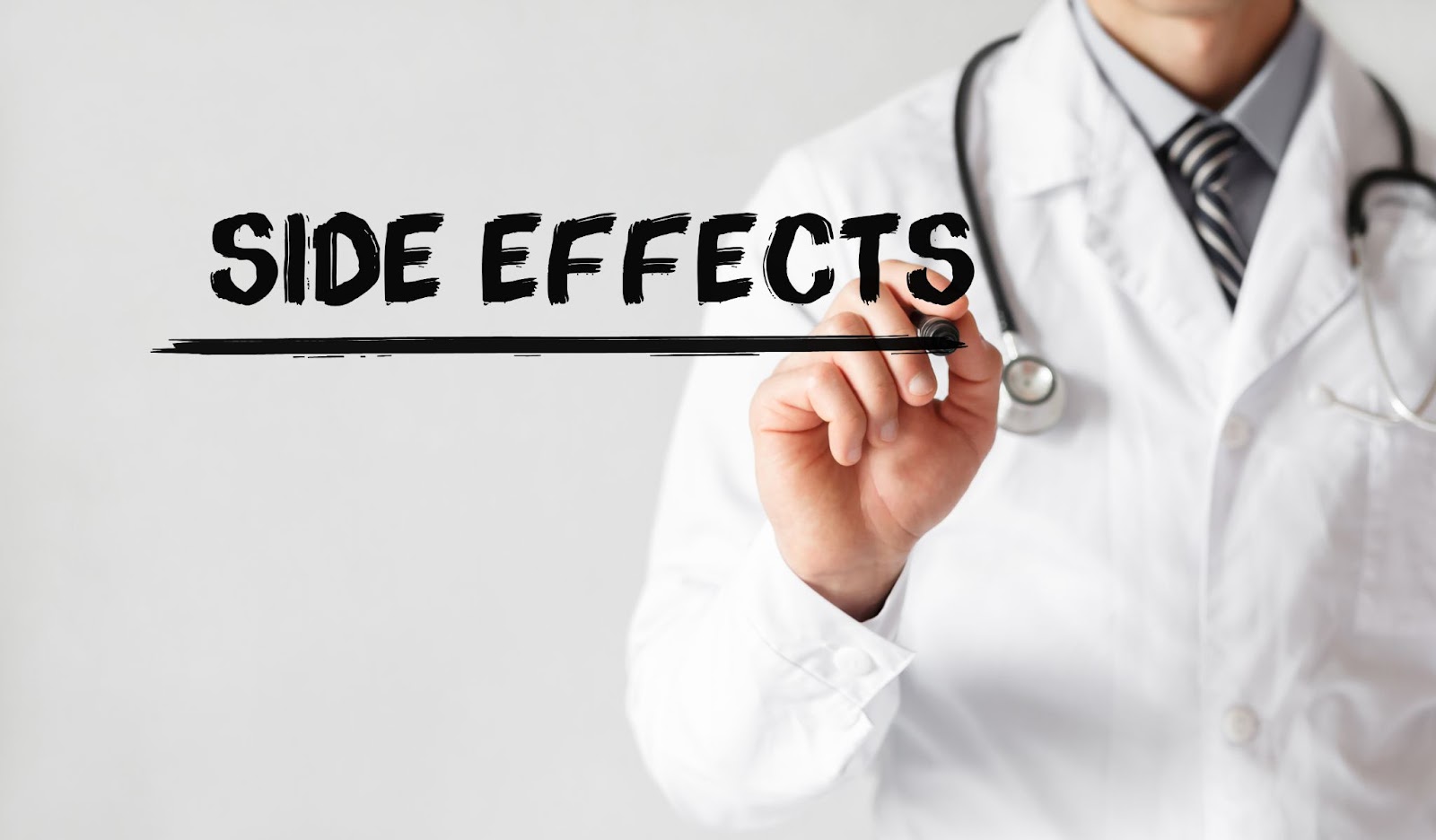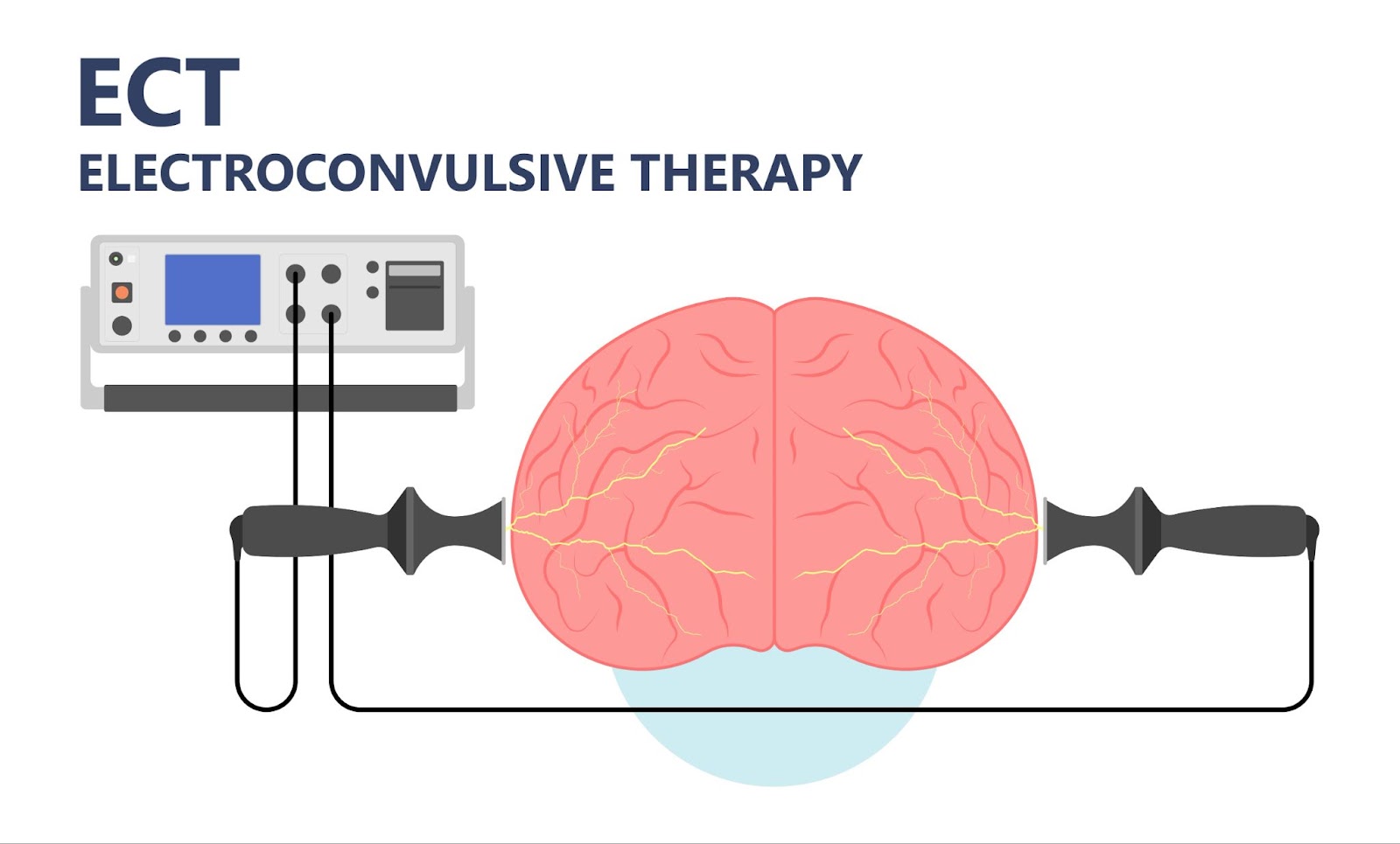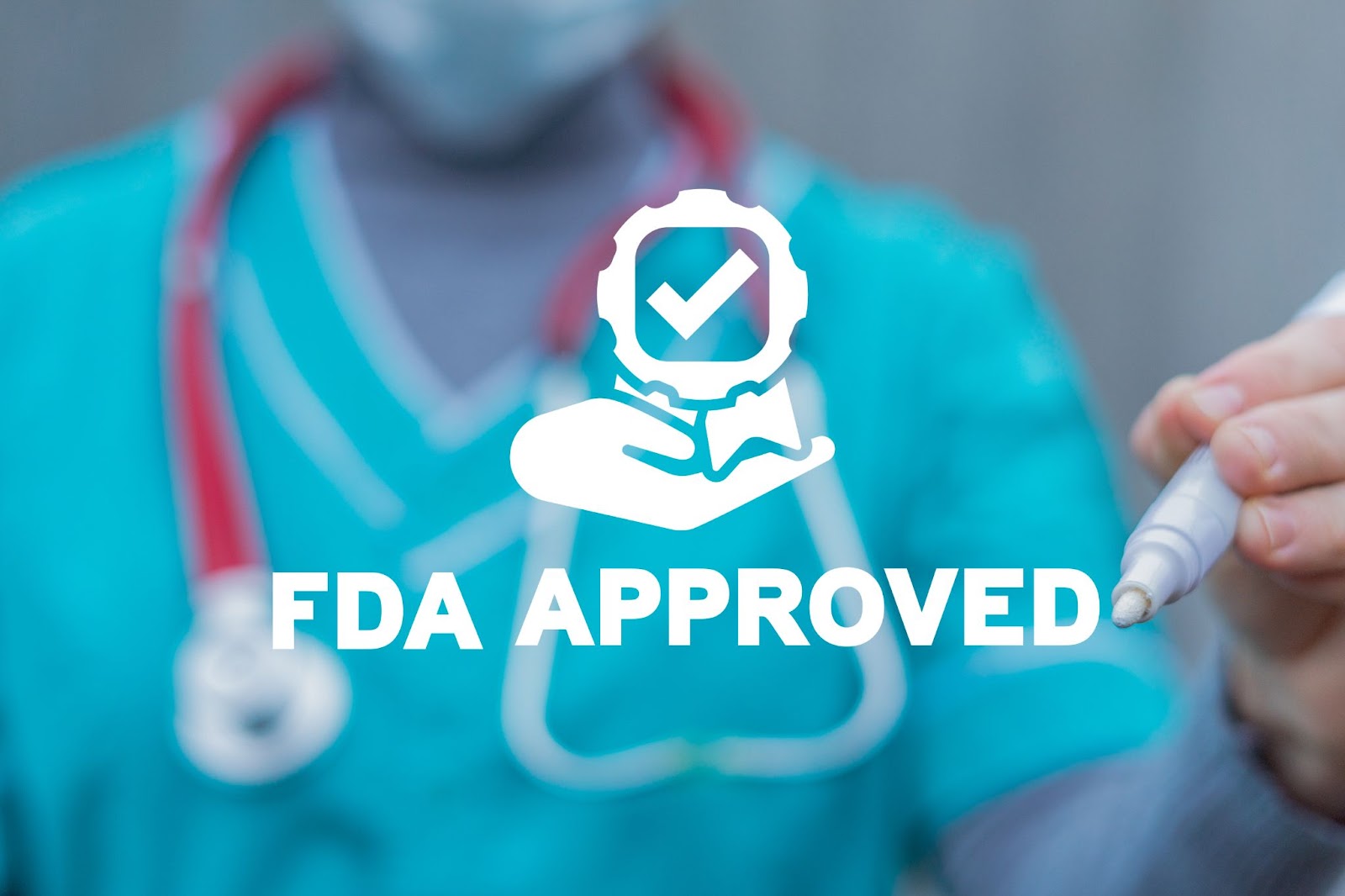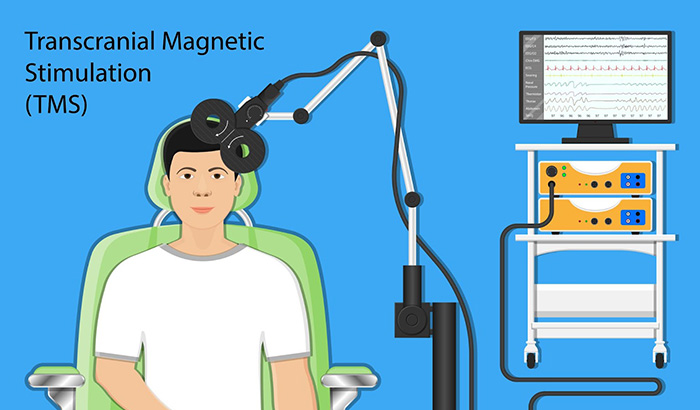Transcranial Magnetic Stimulation (TMS) therapy has emerged as a beacon of hope for many grappling with depression and other mental health challenges. But is TMS therapy legit? And is TMS real? As with any innovative treatment, TMS is often shrouded in myths and misconceptions that can cloud the truth of its efficacy and safety.
No matter how good something is, hearing misconceptions about it might deter you from trying it. That is why we’ve written this blog — so you can know the truth once and for all about TMS therapy.
In this comprehensive exploration, we’re setting the record straight by separating fact from fiction. Our journey will demystify TMS therapy, debunking common myths from its supposed discomfort to misconceptions about its experimental status.
Join us as we unveil the reality of TMS therapy, empowering you with the knowledge needed to make informed decisions about this life-changing treatment. Indeed, there are many TMS benefits you might not know about.
Let’s get started with our first myth: that TMS therapy is painful.
Myth 1: TMS therapy is painful
Many people believe that TMS therapy is a painful procedure, but the truth is far from it. While many medical interventions are painful, TMS isn’t one of them.
To start, let’s understand what TMS therapy is — a non-invasive treatment that uses magnetic fields to stimulate specific areas of the brain. The primary purpose of TMS therapy is to alleviate symptoms related to mental health conditions like depression and anxiety.
Unlike traditional treatments like medications, TMS therapy targets the root cause of the problem directly, offering a unique and effective approach.
Now, let’s address the pain aspect. Contrary to popular belief, TMS therapy is a painless procedure. You might be wondering, how can anything involving magnets not be painful?
But don’t worry, my friend. The magnetic pulses used in this therapy only reach a shallow depth within the brain, specifically targeting the areas responsible for mood regulation. These pulses are gentle and do not cause any discomfort during the session.
During a TMS therapy session, you’ll be sitting comfortably in a chair, fully awake and aware. A specialized device will be placed on your head, resting gently against your scalp. This device generates the magnetic pulses that stimulate your brain.
As the treatment progresses, you might feel a tapping or a mild sensation on your scalp, but it’s important to note that this is not painful. In fact, some people even find it relaxing!
Furthermore, TMS therapy sessions are relatively short. You can easily fit them into your daily routine without any significant disruptions. Additionally, this treatment is typically administered five times per week over a duration of four to six weeks. Although it might seem like a lot of sessions, each one is quick and pain-free.
Now, my friend, it’s crucial to understand that every person’s experience with TMS therapy can be different. While most individuals report no pain during the treatment, some might experience mild side effects such as a headache or slight scalp discomfort. These sensations, if present, are typically temporary and go away on their own shortly after the session ends.
In short, TMS therapy is not painful. The treatment is gentle, non-invasive, and does not involve any discomfort beyond mild sensations occasionally felt on the scalp. It stands out from traditional approaches to mental health conditions and offers hope to those who have not found relief from medications alone.

Myth 2: TMS has severe side effects
TMS does not have severe side effects. It’s a fact that TMS is a safe and well-tolerated treatment option with minimal side effects.
When it comes to TMS, one of the most important things to understand is that it is a non-invasive procedure. This means that the risk of experiencing severe side effects is extremely low.
Naturally, every medical treatment carries some potential risks, but in the case of TMS, they are generally minimal and transient. As we’ve discussed, the most commonly reported side effect of TMS is mild scalp discomfort or a slight headache during or after the therapy session. However, these sensations are generally short-lived and tend to go away on their own within a short time.
Compared to other treatment options like medication, the side effects of TMS are significantly milder. Many individuals who have previously struggled with depression or anxiety have found TMS therapy to be a welcome alternative because of its gentle approach and the lack of debilitating side effects often associated with medications.
It’s important to remember that TMS is a highly individualized therapy. Each person’s response to it may vary, so it’s essential to communicate openly with your TMS provider throughout the treatment process. By ensuring proper monitoring and adjustment, any potential side effects can be addressed and managed effectively.
Additionally, TMS has been clinically proven to have a very low risk of serious adverse effects. Numerous studies and research trials have been conducted, and none have reported any long-term harmful effects resulting from the use of TMS as a treatment for depression or other mental health conditions.
So, my friend, you can rest assured that TMS therapy is considered safe and well-tolerated. The occurrence of severe side effects is rare, and any discomfort experienced during the sessions is generally mild and temporary.
Finally, it’s worth mentioning that TMS therapy is FDA-approved for the treatment of major depressive disorder and certain other conditions. This approval demonstrates the extensive research and regulatory scrutiny that TMS therapy has undergone to ensure its safety and efficacy.

Myth 3: TMS is the same as ECT
Myth Busted: TMS and ECT are different treatment options altogether. While they both involve stimulating the brain to alleviate certain mental health conditions, the methods and effects are quite distinct.
Imagine TMS as a gentle tapping on the brain’s surface using magnetic pulses, just like when you tap rhythmically on a table. It doesn’t involve any sedation or anesthesia and is completely non-invasive, meaning no surgery or incisions.
TMS is a safe, painless, and effective treatment for mental health conditions such as depression, anxiety, and obsessive-compulsive disorder (OCD).
On the other hand, ECT is a treatment used for severe depression or certain psychiatric disorders when medications haven’t been effective. ECT is more invasive and involves brief electrical stimulation of the brain while the patient is under general anesthesia.
Contrary to TMS, ECT can cause temporary seizures, which are controlled and monitored by qualified medical professionals.
The difference becomes clear
While both TMS and ECT are forms of brain stimulation, the striking differences between them rest in the procedure and the associated side effects.
Treatment experience
TMS: During TMS therapy, you remain fully awake and aware. You can even listen to music or watch TV during the session, providing a comfortable and relaxed environment.
ECT: In contrast, ECT requires the patient to be asleep during the procedure. The medical team will give you anesthesia to make sure you don’t feel any pain or discomfort during the treatment.
Side effects
TMS: TMS therapy has minimal side effects, and any experienced are usually mild and temporary.
ECT: ECT, due to its more invasive nature, can have more significant side effects, such as confusion, memory loss, and muscle soreness. However, these effects are often temporary and resolve within a short period.
Always consult with a healthcare professional who specializes in TMS therapy or psychiatry to determine the best course of treatment for your specific needs. Understanding the facts and dispelling misconceptions can open doors to new and effective possibilities for mental health care.
Myth 4: TMS is experimental and not evidence-based
TMS is not experimental. TMS has been thoroughly researched, and the evidence supporting its effectiveness continues to grow.
Fact 1: Extensive clinical research supports TMS efficacy
My friend, researchers have extensively studied TMS therapy. Clinical trials and scientific studies have shown that it effectively treats various mental health conditions, especially major depressive disorder (MDD) and obsessive-compulsive disorder (OCD).
To give you a clearer picture, multiple rigorous studies, including randomized controlled trials, have consistently shown that TMS therapy can significantly reduce depressive symptoms in individuals who haven’t responded well to traditional treatments like medication or therapy alone.

Fact 2: FDA-approved treatment for depression and OCD
Would an experimental therapy receive approval from the United States Food and Drug Administration (FDA)? No way! TMS was granted FDA approval in 2008 specifically for the treatment of depression. Since then, it has also gained FDA approval for treating OCD.
This official stamp of approval reinforces TMS’s efficacy and indicates its safety when administered by trained professionals. It’s crucial to note that the FDA thoroughly evaluates the scientific evidence before approving any medical intervention.
Fact 3: Long-term benefits and minimal side effects
Another aspect of TMS therapy worth highlighting is its long-term benefits and minimal side effects. Multiple follow-up studies have indicated that the improvement in depressive symptoms achieved through TMS can be sustained for an extended period. This is excellent news for those who have been struggling with recurring depression.
Moreover, TMS carries limited side effects, which are generally mild and transient. The most common side effects reported during treatment sessions include scalp discomfort or mild headaches. TMS has a significantly favorable profile compared to the potential side effects associated with medications.
Fact 4: Growing adoption by healthcare professionals
TMS is not some far-fetched, experimental treatment confined to a few obscure clinics. It has gained immense credibility and acceptance among healthcare professionals worldwide. With numerous certified TMS centers across the globe, doctors and specialists are providing this evidence-based therapy to help people find relief.
Try TMS therapy at Brain Health Center
Ready to uncover the truth about TMS therapy and explore how it can transform your journey to mental wellness? Look no further than Brain Health Center, your trusted partner in demystifying and delivering this revolutionary treatment.
Our team of experts is committed to providing compassionate care backed by the latest research and technology in TMS therapy. Don’t let myths hold you back from exploring a potential path to healing that could completely transform your life.
Visit us at Brain Health Center, where we’re dedicated to addressing all your TMS therapy needs and guiding you every step of the way toward a brighter, healthier future. Take the first step today — your journey to wellness begins with us.
Call us at 435.900.0123, or fill out the form on our website to get started today and see how TMS therapy can benefit you.

